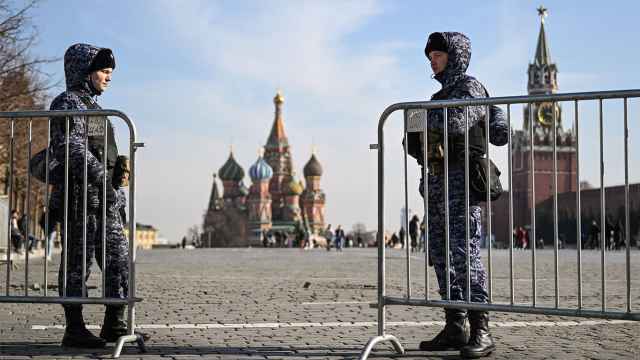German carmaker Daimler does not plan to increase its stake in Russian truck maker KamAZ, it said on Thursday, renouncing a long-considered deal amid rising tension between Moscow and the West over Ukraine.
Daimler controls 15 percent of KamAZ shares, including 11 percent it owns directly and 4 percent that the European Bank for Reconstruction and Development holds on its behalf. It has a partnership agreement that would allow it to increase its holding this year or next, but the talks have dragged because of differences over price.
A new shareholder agreement, expected to be signed this year, did not reserve the exclusive right for Daimler to negotiate the purchase of an additional stake, the Vedomosti business daily reported Thursday.
The paper also quoted an unidentified Daimler representative as saying that after discussions about a possible stake increase with its Russian partners, the German carmaker had come to the conclusion that its share was "optimal."
"We have no plans to further increase our stake," a Daimler spokesman told Reuters, adding that the company is continuing talks about "cooperation within the KamAZ joint venture."
In addition to owning shares in KamAZ, Daimler has a joint venture with the Russian truck maker that produces Mercedez-Benz trucks in Russia. Daimler also supplies engines and axles for the Russian company's trucks and buses and the two have been in talks about setting up local production of these parts.
The news coincides with the imposition of sanctions by the United States and the European Union against Russian individuals and companies after the country's annexation of Crimea and failure to curb violence in Ukraine.
Russian state conglomerate Rostec is the biggest shareholder in KamAZ with a 49.9 percent stake. A consortium of investors, led by Ruben Vardanyan, owns 23.6 percent and had been in talks with Daimler over the stake sale.
See also:
A Message from The Moscow Times:
Dear readers,
We are facing unprecedented challenges. Russia's Prosecutor General's Office has designated The Moscow Times as an "undesirable" organization, criminalizing our work and putting our staff at risk of prosecution. This follows our earlier unjust labeling as a "foreign agent."
These actions are direct attempts to silence independent journalism in Russia. The authorities claim our work "discredits the decisions of the Russian leadership." We see things differently: we strive to provide accurate, unbiased reporting on Russia.
We, the journalists of The Moscow Times, refuse to be silenced. But to continue our work, we need your help.
Your support, no matter how small, makes a world of difference. If you can, please support us monthly starting from just $2. It's quick to set up, and every contribution makes a significant impact.
By supporting The Moscow Times, you're defending open, independent journalism in the face of repression. Thank you for standing with us.
Remind me later.





